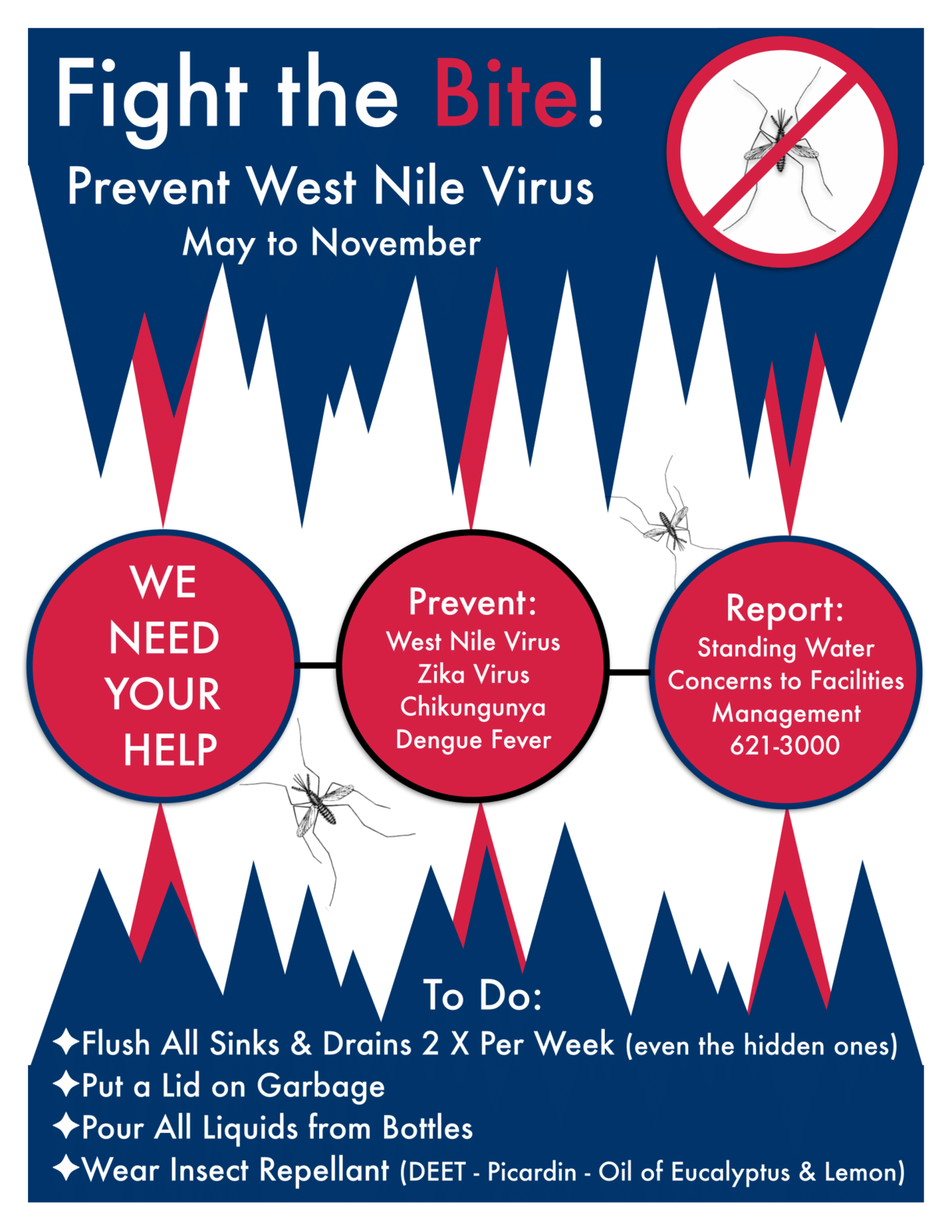Mosquito & West Nile Virus
Overview
Mosquito control has become more important with the arrival in Arizona of the West Nile Virus (WNV). WNV is a virus transmitted by the bite of a mosquito. WNV has been around a long time in Africa, West Asia and the Middle East. It was first found in the U.S. in New York in 1999 and since spread westward, arriving in Arizona’s mosquitoes in 2003. In 2019 there were 174 confirmed or probable WNV human cases in Arizona and 19 fatalities reported. In Pima County for 2019, there were 10 confirmed or probable WNV cases. In 2020, there was only a total of 11 confirmed or probable WNV cases throughout Arizona. This is thought to be due to the poor monsoon that year. With our record setting monsoon in 2021, as of 10/7/2021, there have been 406 confirmed or probable WNV cases throughout Arizona, with 20 fatalities. In Pima County, there have been 13 confirmed or probable WNV cases.
What are the symptoms of a West Nile Virus Infection?
Most people (80%) who are infected with WNV will have no symptoms. Up to 20% will show mild flu like symptoms lasting for 3 – 6 days. One out of 150 people infected will develop the serious illness called West Nile Encephalitis. People over the age of 50 are more susceptible. Symptoms can include high fever, headache, neck stiffness, coma, tremors, convulsions, muscle weakness, vision loss, numbness and paralysis.
Prevention
The best means of preventing WNV infection is to control the mosquito population and avoid mosquito bites. This webpage focuses on building occupants. If your job duties are primarily outdoors, please visit the websites cited at the end of this brochure for additional guidelines on wearing long sleeves/pants and using insect repellent containing DEET.
How can we control mosquitoes?
Eliminate standing water. This gets rid of places where mosquitoes breed. Mosquito eggs hatch into larvae (wrigglers) and mature to adults in about a week in less than a cup of water!
Do not dispose of ½ full soda cans, bottles or cups with ice into garbage or recycling. Pour liquids into sink first.
Put a lid on garbage cans (mosquitoes like to hide in dark cave like spots like the inside of garbage cans).
Flush all sinks, floor drains and cup sinks twice a week from May till Nov.
Use a safe larvicide in areas where standing water cannot be eliminated. Fish can also be used in ponds to eat the larvae (wrigglers).
Who should I call with a mosquito problem at a University campus facility?
Facilities Management: 621-3000
Please report where you see mosquitoes. If there are mosquitoes, there must also be standing water nearby. Please look for and report any standing water you see. Report any window screens in need of repair, or exterior doors that don't close properly.
DO NOT use spray insecticides to kill adult mosquitoes inside buildings. Insecticides can cause indoor air quality problems for occupants.
Facilities Management has an active mosquito control program including weekly application of a safe and environmentally friendly larvicide to known areas of standing water outdoors.
The larvicide uses a natural bacterium found in soil called Bacillus thuringiensis israelensis that prevents the larvae in the water from maturing into adult mosquitoes. It does not harm wildlife, pets, other insects or people. Indoor areas such as floor drains are treated as needed.


